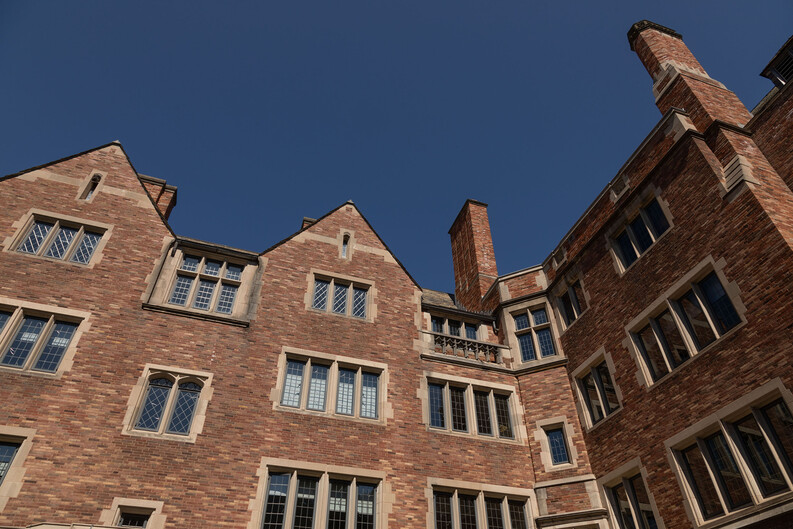Situation Dire in Lebanon, Scholar and Advocate Say at Schell Center Event

Speakers described a growing humanitarian crisis in Lebanon at an Orville H. Schell Jr. Center for International Human Rights4 event Oct. 16.
Lebanese international lawyer and legal scholar Chibli Mallat joined international human rights advocate and lawyer Kristine Beckerle ’15 for the conversation, moderated by Robert W. Winner Professor of Law and the Humanities Paul Kahn, Schell Center co-director. The guest speakers, both based in Lebanon, discussed present conditions there, how they relate to the ongoing crisis in Gaza and the West Bank, and the implications for law and policy.
Beckerle described the current turmoil in Lebanon as an escalation of pre-existing tensions. She said that devastation caused by Israeli airstrikes has exposed grave weaknesses in an international human rights approach that relies upon information, documentation, advocacy, and litigation. These methods cannot secure meaningful protection for Lebanese civilians, Beckerle said. She saw irony in the U.S. effort to evacuate Westerners to save them from what she called “Western bombs.”
Both Beckerle and Mallat emphasized the severity of the humanitarian crisis in Lebanon, describing the many families displaced and entire villages evacuated. Beckerle told how displaced individuals struggle to find shelter, particularly in Beirut, due to cost. Syrian refugees face even greater difficulties because rental housing and shelters favor Lebanese nationals, she said.
To illustrate the devastation of Israeli airstrikes, Mallat played a video of the historic village of Mhaibib in southern Lebanon being destroyed in a single military operation. He criticized the geopolitical dynamics of ceasefire proposals. In his view, an effective ceasefire agreement must put an end to what he called settler violence in the West Bank.
The discussion also delved into the implications of the war for Lebanese domestic politics. Kahn raised concerns about how the ongoing airstrikes could further destabilize the country. Beckerle then warned that the violence could exacerbate divisions among communities in Lebanon, which she thought the Israeli government was seeking to stoke and exploit.
Beckerle argued that the U.S. must reconsider its approach to foreign policy in the region, which he said has often involved pushing for specific political outcomes, expecting these outcomes to resolve conflict. She argued that an end to the violence must precede political rebuilding and that this rebuilding is the task of the Lebanese people. Mallat emphasized the need for a Lebanese president who could unify across parties rather than merely serve as a weak, compromise figure. Both Beckerle and Mallat expressed skepticism about prospects for rebuilding Lebanon's political structures.
Both speakers also expressed frustration with international human rights law, which they believe has failed to protect civilians in Palestine and Lebanon. Beckerle noted a shared sense of disillusionment among the Lebanese human rights advocates with whom she works. Unable to ameliorate the situation, these advocates feel the international human rights system was not built for them, she said.


